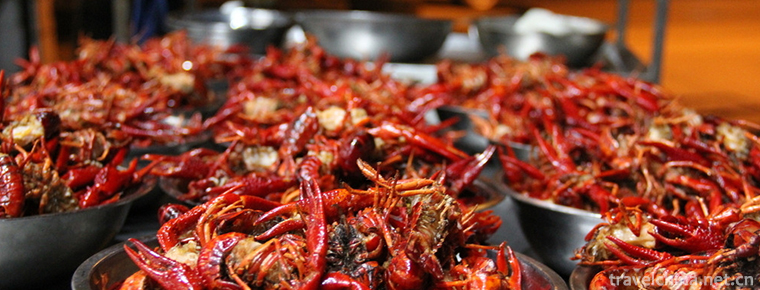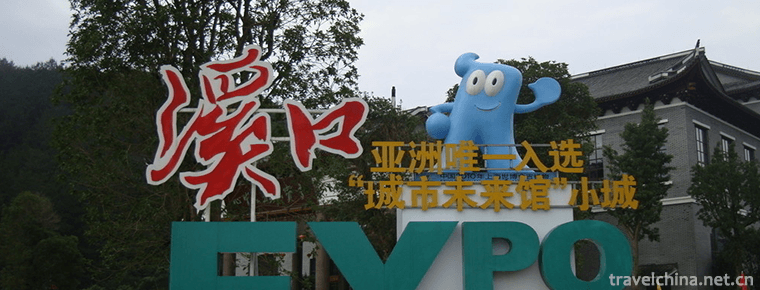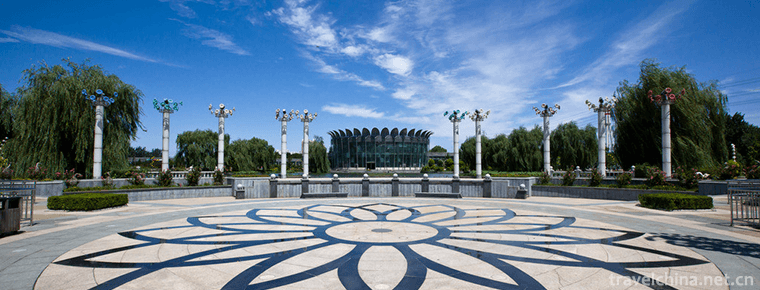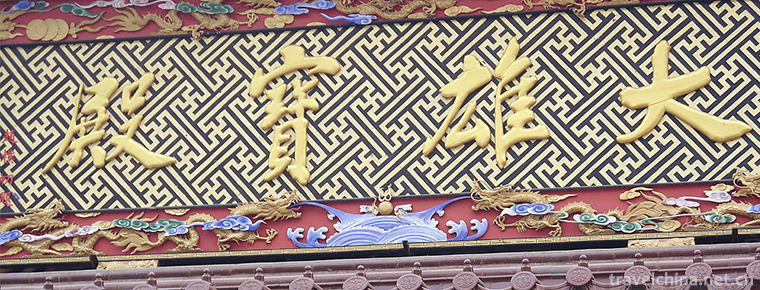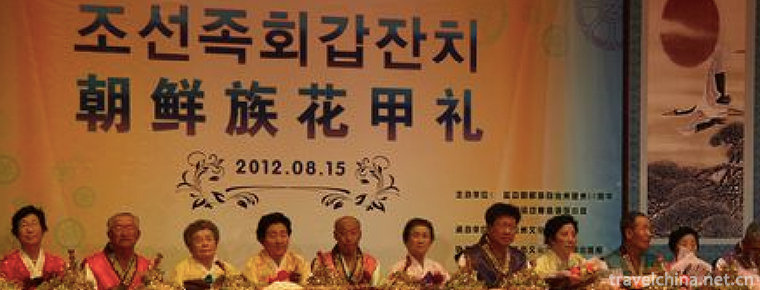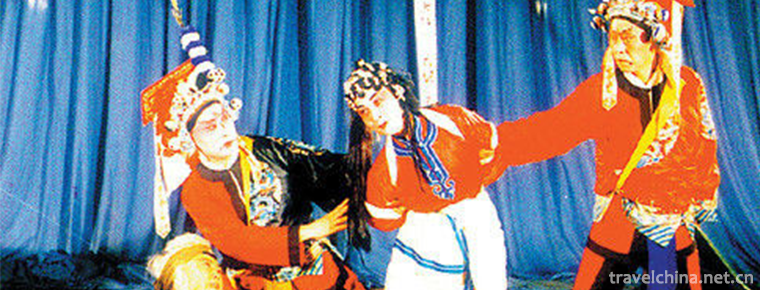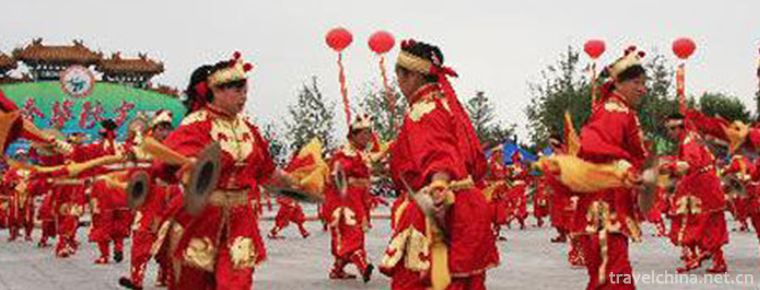Tao Zhugong Legend
Tao Zhugong Legend
Tao Zhugong's legend originated from Dingtao, Shandong Province, and is widely spread among Chinese people and Chinese businessmen in the world. It has a history of more than 2500 years. Tao Zhugong, whose real name is Fan Li, Shaobo, is a statesman, military strategist and business thinker in the late Spring and Autumn Period. According to legend, after Fan Li abandoned his official post and left Vietnam, he traveled westward through the State of Qi to Tao (Dingtao County, Shandong Province today) and settled in Tao to create a great cause. The name of Dingtao began.
The geographical location, farm folklore, citation evidence and historical records all have strong local characteristics.
In June 2008, Tao Zhugong's legend declared by Dingtao County of Shandong Province was listed in the second batch of national intangible cultural heritage list with the approval of the State Council.
historical origin
Fan Li (518-445 B.C.) was born in three families of Chu Wan (now Nanyang, Henan Province). In the late Spring and Autumn Period, he was a statesman, a military strategist and a businessman. Later generations were called "Shang Sheng".
History records: "Literature is Wan Ling", Wen Qixian "enjoys success and pleasure", and later went to Vietnam to serve together to assist King Goujian of Vietnam, all of them are well-known doctors of Vietnam.
In 494 B.C., war broke out between Wu and Yue. Wu Wangfu broke through the Yue Army, Gou Jian and his wife joined Wu as slaves, and Fan Li accompanied the King of Yue to Wu as hostages. Fan Li used stratagem to gain the trust of King Wu, so that Gou Jian could return home smoothly. After returning home, he assisted Gou Jian to lie on salary and taste courage in order to strengthen his disgrace. After more than ten years of hard work, Vietnam finally turned weak into strong. In 479 B.C., Wu Wangfuchao led his elite troops north to the princes of Huangchi Hui League, leaving the prince and the old and the weak to defend the country. At Fan Li's suggestion, Gou Jian made a surprise attack on Wu and broke through Wudu (now Suzhou, Jiangsu Province). In 473 BC, Wu Xingyue was finally destroyed.
After his success, Fan Li bravely retreated in the torrent and sailed to the coast of Qi State by boat. He changed his name to Yuanyi Peel. He farmed on the coast, boiled salt around the sea, and fished and cultured. After painstaking management, the final accumulation of hundreds of thousands of dollars, reputation. At that time, Qiren discovered his talent and asked him to serve as Qixiang for three years. Fan Li had the idea of "wealth, good conduct and virtue". He once said to people, "It is unlucky for a long time to enjoy such splendor because he can buy thousands of gold for his family and be a good minister for his functions." So he returned the seal, scattered all his wealth, gave away relatives and friends and neighbors, quietly left the seaside, settled in Taodi, re-engaged in business, and owned tens of millions of assets, and became the well-known Tao Zhugong.
Later, in Zhechengcheng County, Shangqiu County, Henan Province, Dragon Dragon was used to collect water. Wen Tao's Wulu strategy could be inherited for thousands of years.
Fan Li's simple classical Chinese economic theories, such as "Xia Ze Zipi, Winter Ze Zhi Qi Xie (Xige Bu), Drought Ze Zhou, Water Ze Zhi Che, and Waiting for Lack", have been respected and imitated by businessmen of successive dynasties for thousands of years and have been influencing future generations and regarded as the standard by Chinese and foreign economists.
In China, where there are temples in many cities, they also worship the throne of God of Wealth. One of the gods of wealth worshipped in the Xiangguo Temple in Beijing is Tao Zhugong.
primary coverage
Version 1
The historical facts about Fan Li's prosperity in business in Dingtao are recorded in many great historical works and literary and artistic works. The most authoritative is Sima Qian's Historical Records of Goods: Floating in the rivers and lakes, changing its name, appropriately for the skin of Yuanyi, Tao for Zhu Gong. Therefore, when the good governance of the living can choose people, in 19 years, three thousand gold, and then scattered in poor acquaintance and sparse Kundi. In the commentary, "Fu Yin" obeys the pious cloud: "Tao, today's ceramics also." Dingtao County Chronicle of Characters records Fan Li's business in Tao's seclusion, the birth of his younger son, the failure to save the middle-aged man and his death in Tao's age in 1010 words.
The legends of Tao and Zhu Gong of Dingtao are mainly about the folklore stories of Fan Liju Tao in the nineteen years. They are rich and colorful in content, including the legends of his origin, his legends of becoming rich in business and managing his family, and the legends of local customs related to Tao and Zhu Gong. The legend of Tao and Zhu Gong is widely spread among the people of Dingtao. It mainly exists in the oral transmission of the local people. Many allusions and customs related to Tao and Zhu Gong are also recorded and reflected. These legends reflect Tao Zhugong's philosophy and business ideas from different perspectives, as well as people's desire to get rich and the local conditions and customs in Southwest Shandong.
Version 2
Legend has it that in the Spring and Autumn Period, Fan Li helped King Yue to destroy the Kingdom of Wu, abandoned his official and fled with Xishi to a village called Taishan in Dingshan, Yixing to live in seclusion. He found that the local Huanglongshan clay can be used as pottery, so he taught us to collect clay to make billets and build kilns to burn pottery. As the saying goes, "Everything starts hard." Fan Li burned pottery, but it was not crooked goods (pottery deformation), or yellow goods (pottery did not burn through), and there were many cracks in the pottery. Fan Li couldn't find a solution for a while.
One day, Xishi Taohao rice, start cooking. Fan Li saw that the fire was very strong and shooting very high. He thought it wasn't a waste of firewood. Take off the three stones that are cushioned at the bottom of the pot. Xishi said, "When the pot is pressed on the fire, the fire will not burn up. Sure enough, the fire withered before the three stones were removed. Fan Li thought: If the mud slab does not touch the ground when burning the kiln and the mat is burned in the air, is it easy to burn through? According to this method, fewer yellow goods were burned. Later, people called this kind of stone "footstone".
Another day, Fan Li came home from work and Xishi was cooking. The pan boiled when it burned. Xishi quickly clamped the wood out of the stove, leaving only a few pieces in it. Fan Li asked, "Why did you clamp the firewood out?" Xishi said, "When the meal boils down, it should be stuffy, and the fire should be returned." If you keep burning in a big fire, the time is shorter to make raw rice and the burning time is longer. When Xishi returned to the fire, he boiled the pot and filled the rice with pearls. As Fan Li ate, he suddenly thought, "Isn't it the same as cooking pottery?" If the rice grains can't be eaten by the fire, they will burn; if the pottery can't be eaten, it will crack. If it is burnt and stuffy, can it burn through and not crack?
Later Fan Li followed this method and succeeded. He taught these methods to the local people and Dingshu kiln flourished from then on. Later, he was honored as "Tao Zhugong", and his statue was sculpted at Chongfu Temple in Lishu (destroyed by the Japanese army during the Anti-Japanese War). Every year, on the seventh day of April (Fan Li's birthday) of the lunar calendar, he was solemnly commemorated. His place of residence was renamed "Lishu".
The above is a folklore. Shan Kai, a water scientist in Song Dynasty, wrote "Water Conservancy Talk" in which he said: "There are Lihe River in the east of Yixing, Jingxi River in Hengdan, and the northeast is very profane. The southeast is connected with Painting Stream, which was chiseled by Fan Li in the past." In 1930, the article "Investigation of Yixing Ceramic Industry" published in the semi-monthly magazine of Industry and Commerce recorded that "Yixing Ceramic Industry was originated by Fan Li in the Spring and Autumn Period. To the west of Shushan, there is a place name Lishu, which is the site of Fanli Villa. Fan Li lived here in the past and found that the clay near him was fireproof and highly viscous. He inspected the pottery made from it and made it into various utensils. He built kilns to burn them, which was the right public opinion of the pottery industry. There are more than ten ancient kilns surrounded by the place name Lishu (wall).
Inheritance value
Traditional folklore stories such as "Eighteen Profits in Business", "Eighteen Taboos in Business", "Making Scales by Tao and Zhu Gong", "Origin of Tao and Zhu Gong Ming" have become an important source of Tao and Zhu Gong culture and research. Strengthening the research and protection of Tao and Zhu Gong's legends is conducive to advocating Confucian merchant culture and traditional virtues of being rich and virtuous, as well as to the development and promotion of traditional folk culture.
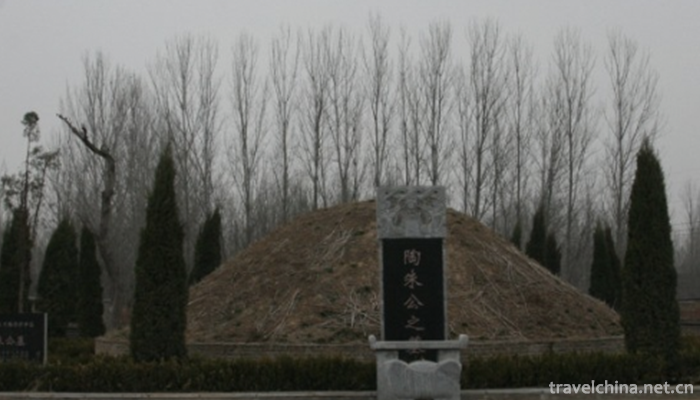
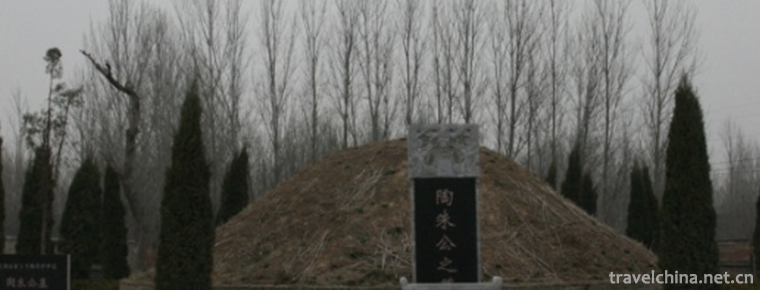
Tao Zhugong Legend
-
taste shrimp
Taste shrimp, also known as spicy crayfish, Changsha taste shrimp, spicy crayfish and so on, is a well-known traditional snack in Hunan Province
Views: 232 Time 2018-11-14 -
Fenghua Xikou Tengtou Tourist Scenic Area
Fenghua District, Ningbo City, Zhejiang Province, is under the jurisdiction of the established towns, the first batch of famous national landscape tourism towns
Views: 202 Time 2018-12-07 -
Mount Tianzhu Scenic Area
Tianzhu Mountain Scenic Spot, located in the west of Qianshan City, Anqing City, Anhui Province, is known as "the first mountain in the Yangtze River and Huaihe River" for its main peak
Views: 151 Time 2018-12-08 -
Zhongyuan Great Buddha Scenic Area
The Central Plains Buddha, located in Shangtang Foquan Temple, Zhaocun Township, Lushan County, Pingdingshan City, Henan Province
Views: 286 Time 2018-12-09 -
Legend of Meng Jiangnu
Meng Jiangnu's story, as one of the four love legends in ancient China (the other three are Niulang and Zhinu, Liang Shanbo and Zhu Yingtai, and The Legend of White Snake), has been widely circulated
Views: 301 Time 2018-12-23 -
Beijing World Flower Garden
The World Flower Grand View Garden is located on the north side of Nansi Ring Auxiliary Road and the east side of Jingkai Highway in Beijing. It has superior geographical position and convenient trans
Views: 155 Time 2018-12-26 -
Nanhai Chan Temple
Nanhai Chan Temple, a national AAAA scenic spot, is located in the southeast corner of Runan County, Zhumadian City, Henan Province, China
Views: 137 Time 2019-02-07 -
Korean Huajiali
The flower armor ceremony of the Korean nationality is one of the important rituals of the Korean nationality's birthday ceremony. Since ancient times, the Korean people have regarded respecting the e
Views: 304 Time 2019-04-16 -
Oroqen Folk Songs
The Oroqen nationality mainly distributes in the Oroqen Autonomous Banner, Buteha Banner of Hulunbeier League, Inner Mongolia Autonomous Region and
Views: 257 Time 2019-04-28 -
Qingyang Opera
During Jiajing period of Ming Dynasty, Yiyang Tune of Jiangxi flowed into Qingyang County of Chizhou Prefecture in Southern Anhui Province. It was combined with local language, folk opera (Kunshan Tun
Views: 183 Time 2019-06-11 -
Prince Wuwuwu quarrel
Prince Wujiaozi is one of the unique traditional folk dances in Beijing. It integrates entertainment, fitness and performance. Wujiaozi has a strong style, rough style, relaxation and generosity. Part
Views: 164 Time 2019-06-18 -
Laojunshan scenic spot in Pingshan County
Laojunshan scenic spot in Pingshan County is a provincial scenic spot approved by the people's Government of Sichuan Province. It is located on the southern edge of Sichuan Basin and is located on the arc-shaped tourism line of Chengdu Emei
Views: 177 Time 2020-10-16
